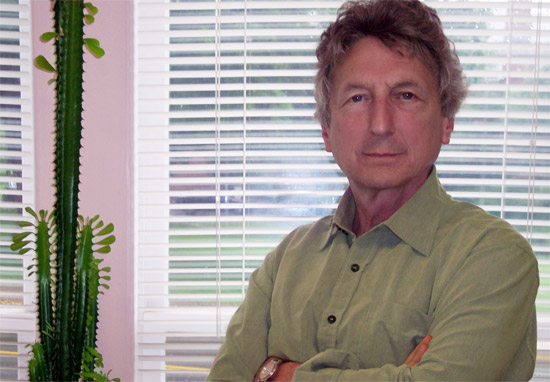Service-Learning Director Expands Program Across Several Departments
 |
| Rob Rosenthal, professor of sociology and director of the Service Learning Center will celebrate his 20th year at Wesleyan in 2007. |
| Posted 06/16/06 |
| Six years ago, Rob Rosenthals community research seminar became so popular students were knocking on President Bennets door requesting more classes like it.
What we discovered was that there was a great need for classes that emphasized service-learning, says Rosenthal, who would become the director of the new Service-Learning Center. Its a great way for students to be of service for the community and learn at the same time. Service-learning classes mesh regular classroom study and lectures with experiences in the real world. Rosenthal meets with outside agency directors to discuss ways Wesleyan students can be of assistance and works with professors to develop classes. In the classes, students are partnered with an outside organization or agency. In 2003, there were only a few SL classes available in a limited number of departments, but Rosenthal pushed for more courses across all disciplines and upped the number five courses a year. During the 2005-06 academic year, students were take service-learning classes in biology, music, psychology, earth and environmental sciences and dance. Just like when youre taking a science class and you have textbooks, lectures and labs, in these classes, your lab is the real world, Rosenthal explains. It really adds a whole new dimension to learning and to teaching. Its a fantastic pedagogical approach which encourages students to take control of their own education. Rosenthal cites two recent course examples. Last year, Katja Kolcio, assistant professor of dance, taught a service-learning course called Dance Teaching Workshop: Theory and Practice. In this theoretical and practical course, she taught Wesleyan students how to teach dance and movement to children and adults. Practical teaching and service outside of Wesleyan campus was required for the class. Likewise, Timothy Ku, assistant professor of earth and environmental sciences, taught Environmental Geochemistry as a service-learning course. Students studied the quantitative treatment of chemical equilibrium in natural systems such as lakes, rivers, and the oceans in the classroom, and then constructed a study of the North End landfill for the City of Middletown to see if methane and other gases could be economically harvested. Next year, students will be teaching community theater in a juvenile training center, conducting research at a local community health center, and mentoring Spanish-speaking students at an area elementary school. Its just wonderful that students can study theories in class and then go out and test these theories and argue about them with each other, based on their actual experiences, Rosenthal says. Serving as director of the Service-Learning Center is only one hat Rosenthal wears on campus. He spends half his time teaching classes in the Department of Sociology. Each, he says, are equally rewarding positions. As a professor of sociology, Rosenthal is an expert on housing, homelessness, social movements and the culture of social movements. He received his bachelors degree from Rutgers University and his masters of arts and Ph.D from the University of California Santa Barbara. He studied sociology at both institutions. Rosenthal is the author of 18 published articles, seven of which cover the topic of homelessness. His book, Homeless in Paradise received the Association for Humanist Sociology Book Award in 1995. Hes currently working on two books, The Persistence of Homelessness, and Playing for Change: Music in Social Movements, each to be published in 2007. He teaches Introductory Sociology, Urban Sociology, Housing and Public Policy, and Music in Social Movements to undergrads, and recently taught Music in Social Movements to students enrolled in the Graduate Liberal Studies Program. In this class, Rosenthal questions how the actual use of music can create movement cultures. Students listen to musicians such as Bob Dylan, Woody Guthrie, Billie Holiday, Janis Joplin, Rage Against the Machine, and Public Enemy and discuss how their music relates to movements in the United States including the labor, civil rights, new left, women’s, and current inner city movements. Knowing that their professor has a deep affection for all music, Rosenthals students stock his music collection with home-made compilation disks. The great thing about being the music guy is that students like to bring me all kinds of music to listen to, Rosenthal says. Im interested in all music genres. Even the best of death-metal will be good. When Rosenthal is not teaching, he enjoys listening to music on his own times, playing basketball, and spending time with his wife, Sunny, and children Sam, 18, and Annie, 15, at their home in Middletown. After 19 years at Wesleyan, Rosenthal hopes his future at Wesleyan is more of the same. Wesleyan has become so much of a positive force, I hope to see more of that and be part of it, he says.
|
| By Olivia Drake, The Wesleyan Connection editor |

